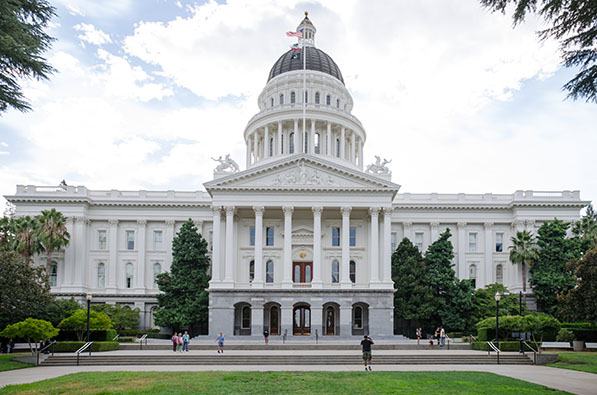In this episode of The Workplace podcast, employment law expert Matthew Roberts and Chris Micheli, adjunct professor at the University of the Pacific, McGeorge School of Law and a partner with Aprea & Micheli, Inc., give an update on important labor- and employment-related bills that passed the California Legislature last week, including bills on discrimination in the workplace (SB 403 (Wahab; D-Hayward), CalChamber job killer AB 524 (Wicks; D-Oakland), CalChamber-opposed bill AB 2188 (Quirk; D-Hayward), and SB 700 (Bradford; D-Gardena)); expansion of paid sick leave (CalChamber job killer SB 616 (Gonzalez; D-Long Beach)); and reproductive-related bereavement leave (CalChamber “Oppose Unless Amended” bill SB 848 (Rubio; D-Baldwin Park)).
The CalChamber will be requesting that the Governor vetoes AB 524, SB 616 and SB 848 because these bills add significant costs and litigation exposure for employers. The Governor has until October 14 to act on the bills passed by the Legislature in the final days of the session.
Below is a condensed summary of the bills discussed in today’s episode. Readers are also encouraged to listen to the podcast to learn about these bills in more detail.
SB 403: Discrimination on the Basis of Ancestry
The first bill Roberts and Micheli discuss is SB 403, a bill that adds “caste” to the list of protected classes under the Fair Employment and Housing Act (FEHA). The bill clarifies that the “ancestry” protected class in the FEHA includes caste. The bill also provides legislative findings and declarations to help provide definition and guidance.
This bill seeks to address the issue of caste discrimination, which is particularly prevalent within some communities, particularly those out of Southeast Asia and elsewhere, Micheli explains.
AB 524: Discrimination on the Basis of Family Caregiver Status
The next bill discussed is one designated by the CalChamber as a job killer, AB 524. The bill makes a substantial change to the FEHA by adding another protected class called “Family Caregiver Status.”
Specifically, AB 524 exposes employers to litigation under the FEHA by asserting that any adverse employment action was in relation to the employee’s “family caregiver status,” which is broadly defined to include any employee who provides direct care to specified family members, but also to any person of their choosing, and the bill would create a de facto accommodation requirement.
Adding additional protected classifications to the FEHA is always concerning to those in the employer community because there’s substantial liability under the law. Potential liability is not just damages and attorneys’ fees, but includes punitive damages as well, Micheli points out.
There are two concerning issues about AB 524, he says. First, the definition of “family caregiver status” can apply to any designated person, such as a friend or neighbor.
Second, a family caregiver is defined as someone who provides “direct care to a family member.” But what does “direct care” mean, exactly? The bill doesn’t say, Micheli says.
“My concern is, if you’re going to create this new classification, let’s give great specificity so that there’s no dispute between the employer and the employee as to what constitutes family caregiving,” he stresses.
A problematic aspect of AB 524 that the CalChamber has pointed out from the start is the de facto accommodation issue, Roberts says.
Rather than use the term “reasonable accommodation,” which is defined in the FEHA statue and is a commonly understood term in the labor and employment world, AB 524 uses a new undefined term: “special accommodation.” This is problematic because “special accommodation” is not previously used in the FEHA, Micheli says.
This may lead the courts to believe that the Legislature meant something other reasonable accommodation, he says.
AB 2188, SB 700: Discrimination on the Basis of Use of Cannabis
AB 2188 was enacted in 2022 and will take effect on January 1, 2024. This new law makes it unlawful for an employer to discriminate against anyone in hiring, firing or disciplining for their use of cannabis off the job and away from the workplace, Micheli explains.
While employers may still require a pre-employment drug screening and drug testing at the worksite, starting on January 1, 2024, employers may only test for active impairment, Roberts says.
Similar to AB 2188, SB 700 also tackles the issue of cannabis-use discrimination. SB 700 was passed by the Legislature last week and now heads to the Governor for a final decision.
If passed, it will be unlawful for an employer to ask a job applicant about their history of cannabis use.
SB 616: Expansion of Paid Sick Leave
Another CalChamber job killer bill awaiting the Governor’s pen is SB 616. This bill imposes new costs and leave requirements on employers of all sizes, by increasing California’s existing sick leave mandate.
The bill originally proposed to increase the minimum mandated paid sick leave days from three days to seven, but this requirement has been amended to five paid sick leave days.
Unfortunately, Micheli says, SB 616 has no guardrails. The law is enforceable under the Private Attorneys General Act (PAGA), and the bill prohibits employers from asking for documentation for the leave.
SB 848: Reproductive-Related Bereavement Leave
The last bill discussed on the podcast is SB 848, which requires employers in California to provide five days of reproductive-related bereavement leave for specified reasons such as fertility, adoption, surrogacy, etc.
Roberts explains that this type of bereavement leave functions just like bereavement leave — employees get five days for each qualifying event and employees have three months to use those five days.
Unlike bereavement leave, however, this reproductive-related bereavement leave does not permit employers to ask for documentation.
Micheli says that legislators did not want to impose a documentation burden on those claiming leave to prove their inability to conceive or to prove the loss of a child.





